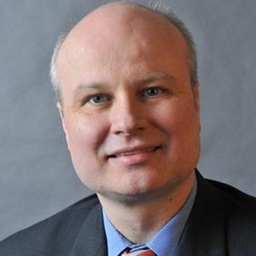
Christian E. Weller
Senior Contributor at Forbes
Find me on Bluesky. Public Policy @umassboston & @amprog; @forbes; economic policy, retirement & wealth inequality;
Articles
-
1 week ago |
forbes.com | Christian E. Weller
A number of policy steps could improve Social Security's finances and avoid drastic tax rate ... More increases or benefit cutsgettyThe Social Security trustees released their latest annual report, evaluating the finances of the country’s premier social program. It faces manageable financial challenges that could become easier if policymakers took large, meaningful steps in the right direction.
-
1 week ago |
forbes.com | Christian E. Weller
Corporations are highly profitable, building up cash reserves and paying out dividends. gettyNonfinancial corporations continue to do very well. Recent data from the Federal Reserve, specifically its Release Z.1 Financial Accounts of the United States, show high profits, trillions in cash, large dividend payouts and modest capital expenditures. These companies do not need more cash as an incentive to invest more – the supposed logic for the tax cuts in Congress’ reconciliation bill.
-
1 week ago |
forbes.com | Christian E. Weller
Household debt continued to drop amid high interest rates. gettyHousehold wealth – the difference between what people own and what they owe – declined by $1.6 trillion in the first three months of the year, according to the Federal Reserve’s June release of its Release Z.1 – Financial Accounts of the United States. This was largely a result of the sharp stock market drop in March 2025, which since has reversed.
-
2 weeks ago |
forbes.com | Christian E. Weller
Trouble spots emerge in overall good inflation reportgettyToday’s report on the Consumer Price Index from the Bureau of Labor Statistics has a number of good news, mainly slowing inflation. But, some trouble spots remain and emerging trouble spots could get worse as the higher costs associated with President Donald Trump’s tariffs as well as other of his policies make their way through the economy. Let’s start with the good news. Overall inflation continues to slow down.
-
2 weeks ago |
forbes.com | Christian E. Weller
Convictions after arrest can reduce retirement savingsgettyA lot of people get arrested and convicted in the United States. Those interactions with the criminal justice system cast long finacial shadows. This is true for retirement savings as well as calculations based on recently released Federal Reserve data show. People who have been arrested and convicted end up with lower retirement savings than people who have not been taken into custody.
Try JournoFinder For Free
Search and contact over 1M+ journalist profiles, browse 100M+ articles, and unlock powerful PR tools.
Start Your 7-Day Free Trial →X (formerly Twitter)
- Followers
- 1K
- Tweets
- 10K
- DMs Open
- No